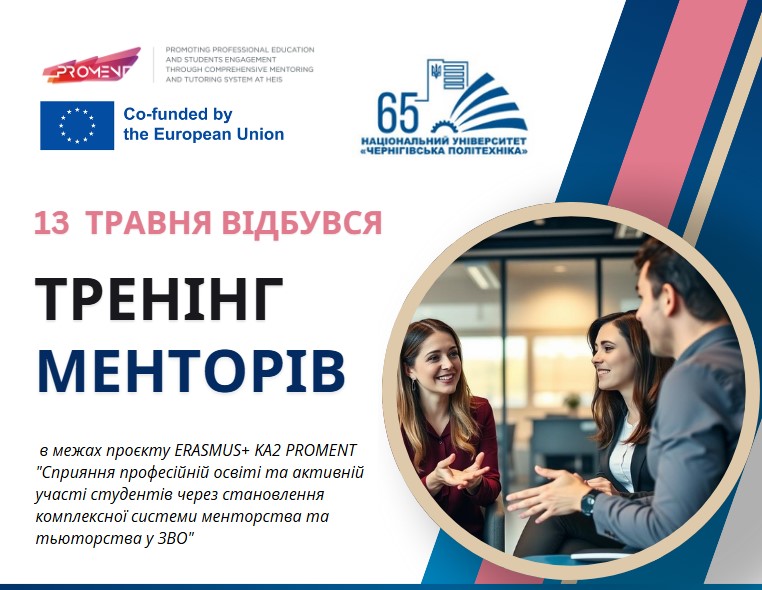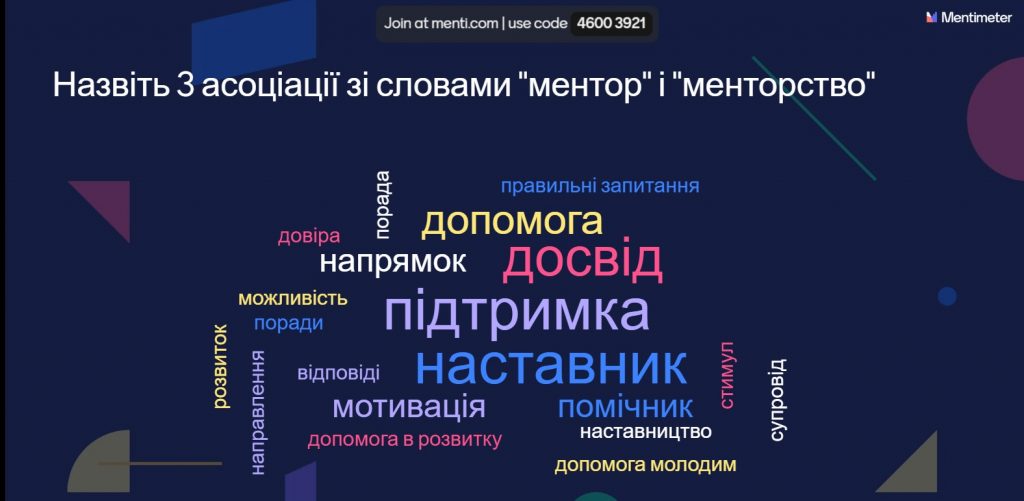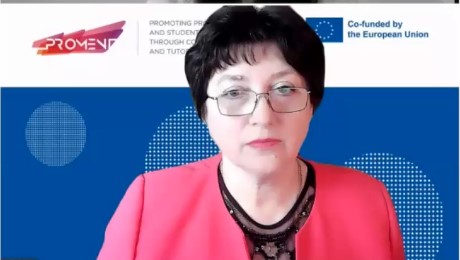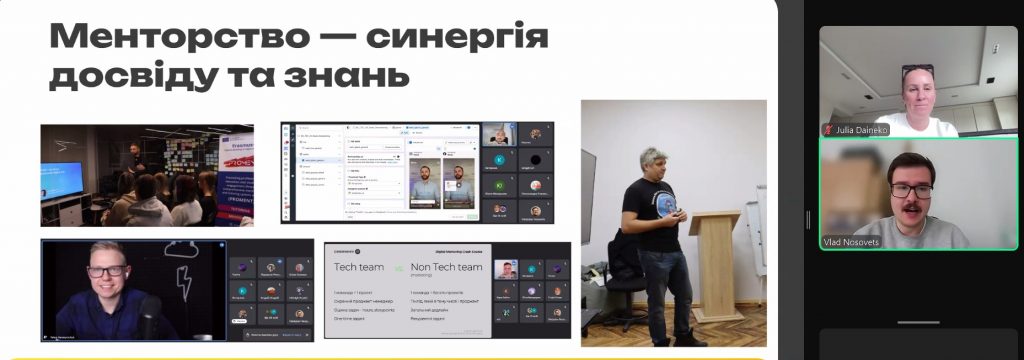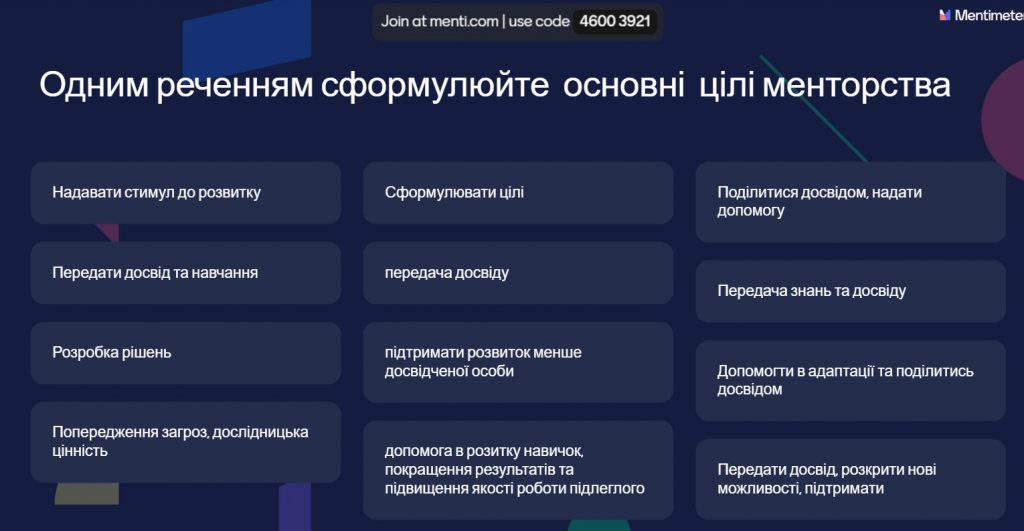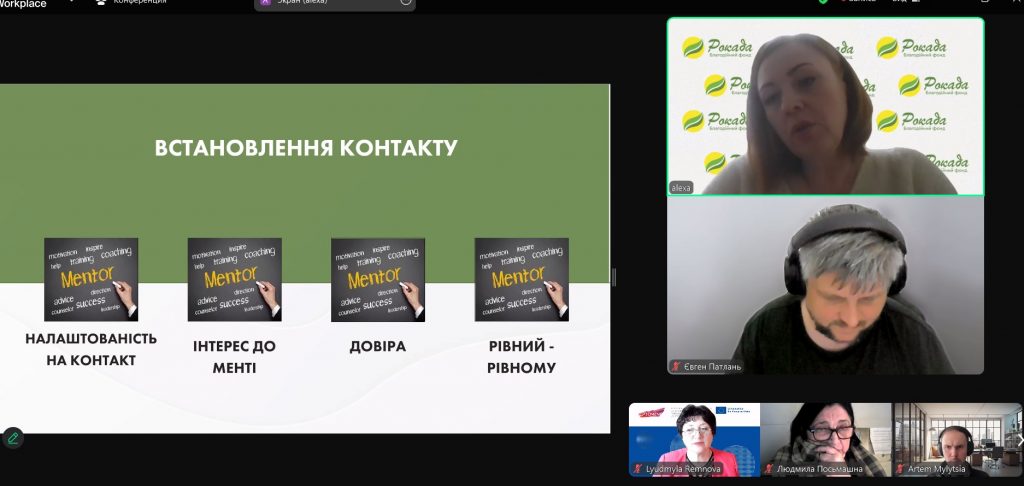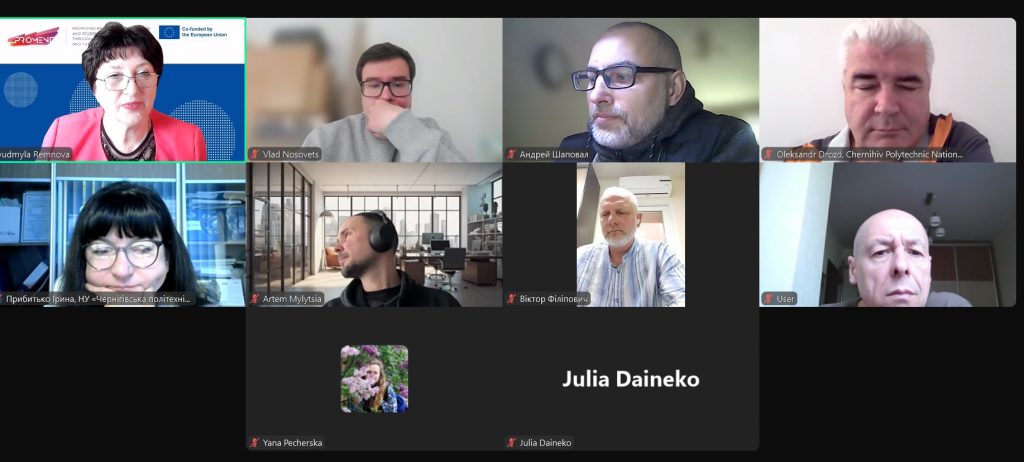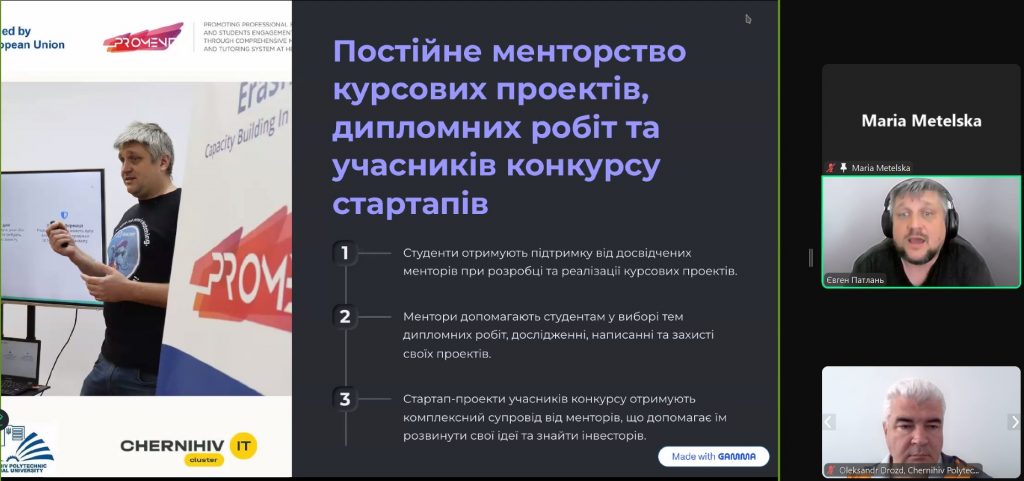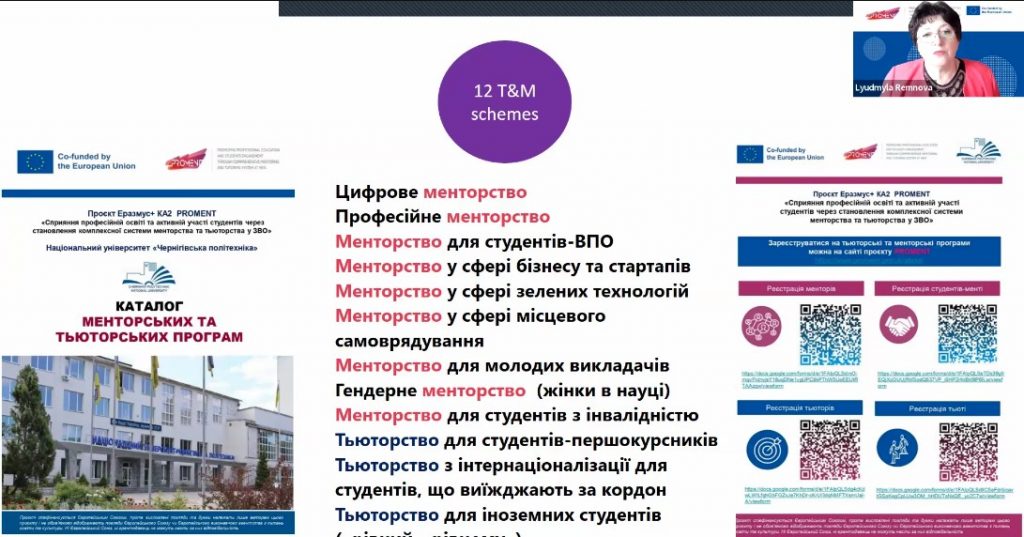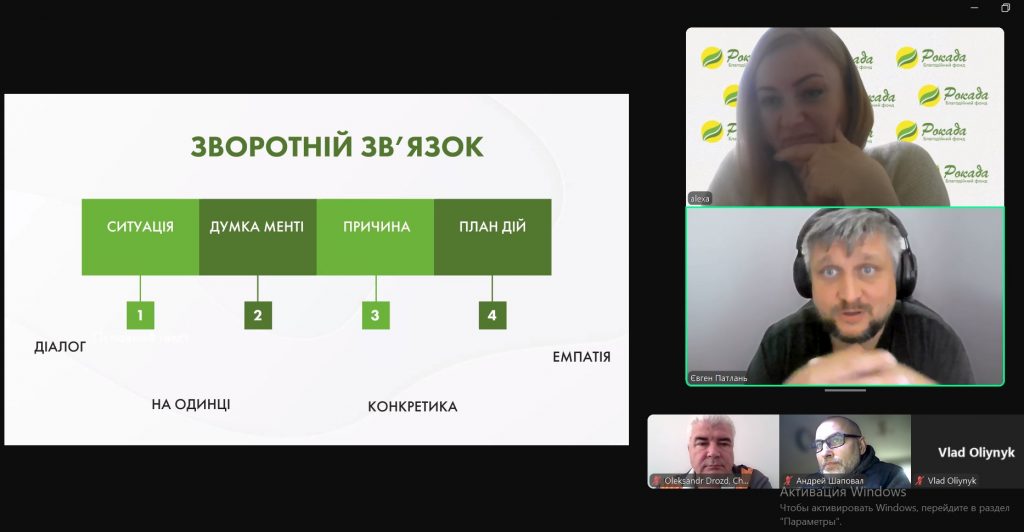Training of mentors took place within the framework of the Erasmus+ project KA2 PROMENT
On 13 May 2025, the Mentors’ Training within the international Erasmus+ project KA2 PROMENT, organised by the Chernihiv Polytechnic National University together with the Chernihiv IT Cluster and the Charitable Foundation “Rokada”, took place online.
The participants of the training had the opportunity to better understand the essence, possible forms and algorithms for implementing mentoring programmes, share the experience of mentoring higher education students, and discuss the main directions for further development of the mentoring culture at the university.
The event was moderated by an experienced IT mentor Yevhen Patlan (Percona). The training participants were greeted by Maksym Zabashtanskyi, the university’s dual education coordinator, who emphasised the importance of mentoring practices in the modern higher education system. Liudmyla Remnova, Institutional Coordinator of the PROMENT project, introduced the PROMENT project methodology and the tasks of developing a mentoring system at the university. Volodymyr Bazylevych and Yevhen Patlan analysed the main results and challenges of the first piloting of mentoring programmes in 2024. Yulia Daineko and Vladyslav Nosovets (Chernihiv IT Cluster) presented successful cases of mentoring in the IT sector. Interactive group work facilitated by psychologist Oleksandra Serdiuk (Charitable Foundation “Rokada”) helped the training participants better understand how to build trust, set goals, maintain motivation, and give constructive feedback to mentee students.
We thank all the participants for their interest in mentoring, and the speakers for their informative presentations, good advice and interesting format of the event.
Thanks to the comfortable atmosphere, the training turned into a platform for an open dialogue about mentoring as a culture of trust, partnership and support at the university.
The project is co-funded by the European Union, but the views and opinions expressed are those of the authors of this project and do not necessarily reflect the views of the European Union or the European Executive Agency for Education and Culture. Neither the European Union nor the grantor can be held responsible for them.
